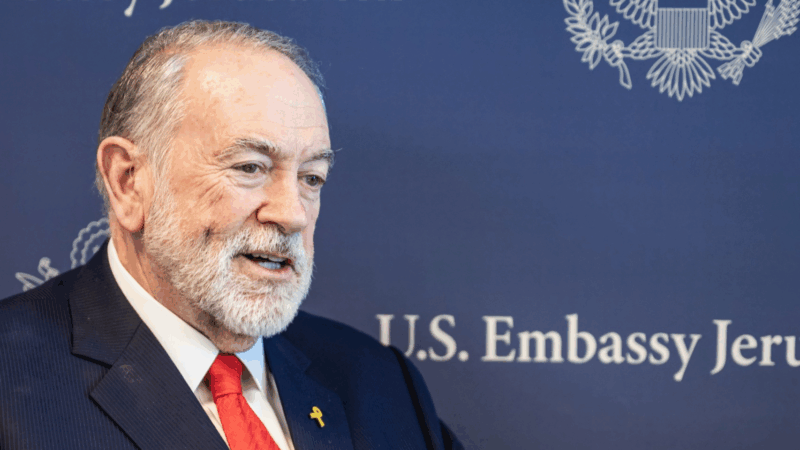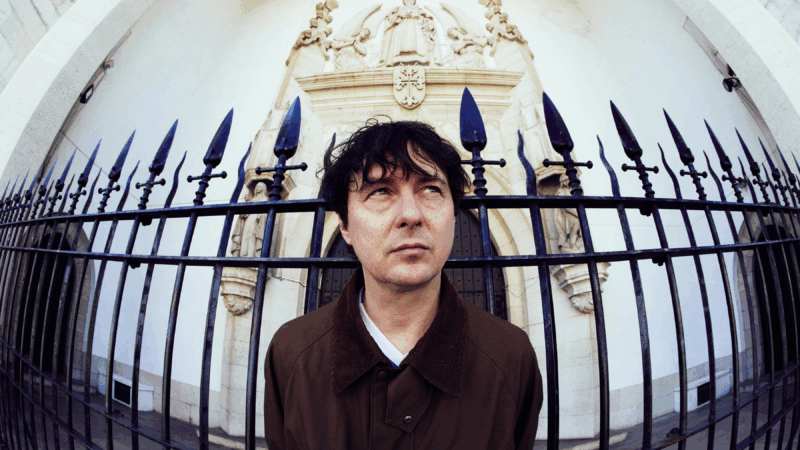Center-right opposition wins German election, with the far right coming in 2nd
BERLIN — Germany’s conservative opposition leader Friedrich Merz won a lackluster victory in a national election Sunday, while the Alternative for Germany doubled its support in the strongest showing for a far-right party since World War II, projections showed.
Chancellor Olaf Scholz conceded defeat for his center-left Social Democrats after what he called “a bitter election result.” Projections for ARD and ZDF public television showed his party finishing in third place with its worst postwar result in a national parliamentary election.
Merz said he hopes to put a coalition government together by Easter. But that’s likely to be challenging.
A discontented nation
The election took place seven months earlier than originally planned, after Scholz’s unpopular coalition collapsed in November, three years into a term that was increasingly marred by infighting. There was widespread discontent and not much enthusiasm for any of the candidates.
The campaign was dominated by worries about the years-long stagnation of Europe’s biggest economy and pressure to curb migration — something that caused friction after Merz pushed hard in recent weeks for a tougher approach. It took place against a background of growing uncertainty over the future of Ukraine and Europe’s alliance with the United States.
Germany is the most populous country in the 27-nation European Union and a leading member of NATO. It has been Ukraine’s second-biggest weapons supplier, after the U.S. It will be central to shaping the continent’s response to the challenges of the coming years, including the Trump administration’s confrontational foreign and trade policy.
The projections, based on exit polls and partial counting, put support for Merz’s Union bloc around 28.5% and the anti-immigration Alternative for Germany, or AfD, about 20.5% — roughly double its result from 2021.
They put support for Scholz’s Social Democrats at just over 16%, far lower than in the last election and below their previous postwar low of 20.5% from 2017. The environmentalist Greens, their remaining partners in the outgoing government, were on about 12%.
Out of three smaller parties, one — the hard-left Left Party — strengthened its position, winning up to 9% of the vote after a remarkable comeback. The pro-business Free Democrats, who were the third party in the collapsed government, looked likely to lose their seats in parliament with about 4.5%. The Sahra Wagenknecht Alliance, or BSW, was hovering around the 5% threshold needed to win seats.
A difficult task for the winner
Whether Merz will have a majority to form a coalition with Scholz’s Social Democrats or need a second partner too, which would realistically have to be the Greens, will depend on whether the BSW gets into parliament. The conservative leader said that “the most important thing is to re-establish a viable government in Germany as quickly as possible.”
“I am aware of the responsibility,” Merz said. “I am also aware of the scale of the task that now lies ahead of us. I approach it with the utmost respect, and I know that it will not be easy.”
“The world out there isn’t waiting for us, and it isn’t waiting for long-drawn-out coalition talks and negotiations,” he told cheering supporters.
The Greens’ candidate for chancellor, Vice Chancellor Robert Habeck, said that Merz would do well to moderate his tone after a hard-fought campaign.
“We have seen the center is weakened overall, and everyone should look at themselves and ask whether they didn’t contribute to that,” said Habeck. “Now he must see that he acts like a chancellor.”
The Greens were the party that suffered least from participating in Scholz’s unpopular government. The Social Democrats’ general secretary, Matthias Miersch, suggested that their defeat was no surprise — “this election wasn’t lost in the last eight weeks.”
A delighted far-right party doesn’t have a partner
AfD co-leader Tino Chrupalla told cheering supporters that “we have achieved something historic today.”
“We are now the political center and we have left the fringes behind us,” he said. The party’s strongest previous showing was 12.6% in 2017, when it first entered the national parliament.
The party’s candidate for chancellor, Alice Weidel, said it is “open for coalition negotiations” with Merz’s party, and that “otherwise, no change of policy is possible in Germany.” Merz has repeatedly ruled out working with AfD, as have other mainstream parties — and did so again in a televised post-election exchange with Weidel and other leaders.
Weidel suggested AfD wouldn’t have to make many concessions to secure a theoretical coalition, arguing that the Union largely copied its program and deriding its “Pyrrhic victory.”
“It won’t be able to implement it with left-wing parties,” she said. If Merz ends up forming an alliance with the Social Democrats and Greens, “it will be an unstable government that doesn’t last four years, there will be an interim Chancellor Friedrich Merz and in the coming years we will overtake the Union.”
Merz dismissed the idea that voters wanted a coalition with AfD. “We have fundamentally different views, for example on foreign policy, on security policy, in many other areas, regarding Europe, the euro, NATO,” he said.
“You want the opposite of what we want, so there will be no cooperation,” Merz added.
Scholz decried AfD’s success. He said that “that must never be something that we will accept. I will not accept it and never will.”
More than 59 million people in the nation of 84 million were eligible to elect the 630 members of the lower house of parliament, the Bundestag, who will take their seats under the glass dome of Berlin’s landmark Reichstag building.
U.S. Ambassador Huckabee is ‘outraged’ at European leaders for condemning Israel
In an interview with NPR, U.S. Ambassador to Israel Mike Huckabee said the U.K., Canada and France were "blaming the wrong perpetrator," and that Hamas is responsible for the suffering in Gaza.
WBHM to welcome Report for America corps member
WBHM is excited to welcome Vahini Shori to its newsroom through a partnership with Report for America. Shori will join the station in July.
Panda Bear’s ‘Sinister Grift’ is a self-assured, midlife joyride
The Animal Collective member's eighth solo album navigates fatherhood and friendship with lots of sonic panache.
A salmonella outbreak sickens dozens, prompting a cucumber recall. Here’s what to do
The FDA says 26 people, nine of whom were hospitalized, have gotten sick across 15 states. It is still figuring out where the cucumbers were distributed — and warning people to take extra precautions.
Judge says Trump administration violated court order on third-country deportations
The Department of Homeland Security had earlier said eight people on a flight out of the U.S. had been convicted of crimes in the United States and that they couldn't be brought back.
Sleep Token is the second hard-rock band to hit No. 1 in 3 weeks
This week the lore-rich, genre-smashing, entirely anonymous hard-rock band Sleep Token lands its first-ever No. 1 album. Elsewhere, on the Hot 100 singles chart, Kendrick Lamar's "Luther (feat. SZA)" registers a 13th consecutive week at No. 1.







